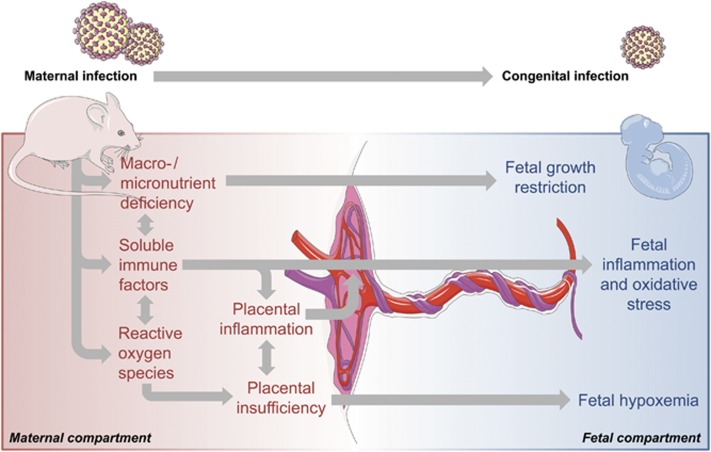Figure 1.
Post-acute pathophysiological effects of maternal infection during pregnancy. Some infectious pathogens (for example, rubella virus, cytomegalovirus, herpes simplex virus-2 and Toxoplasma gondii) can be vertically transmitted and lead to congenital infections, which in turn can result in severe developmental deficits. Maternal infection during pregnancy can further induce a number of pathophysiological responses, even if the pathogen is not vertically transmitted. These responses include the production of soluble immune factors such as cytokines and other mediators of inflammation, as well as reactive oxygen species. Some of these factors might cross the placental barrier and enter the fetal environment, thereby causing fetal inflammation and oxidative stress. Maternal infection during pregnancy can further induce inflammatory response in the placenta and cause placental insufficiency, which in turn can cause fetal hypoxemia. In addition, infection can cause (temporary) states of macronutrient and micronutrient deficiency, which limits the fetal availability of essential nutrients necessary for normal fetal development and growth. Finally, maternal infection during pregnancy can modify the microbial composition of the placenta, which might alter the development of the offspring’s microbiome (not shown).

